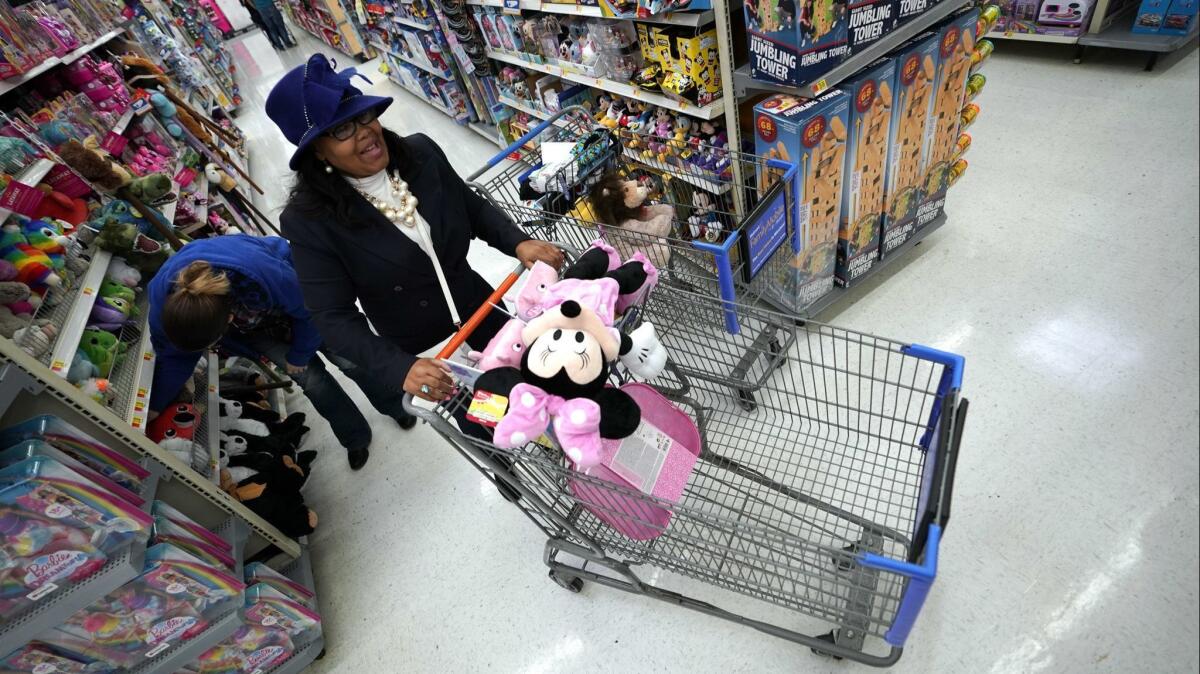Consumer spending rose, inflation slowed in October as economy remained strong, government data show

- Share via
Americans’ spending rose more than forecast in October, giving the biggest part of the economy a solid start to the fourth quarter, while a measure of underlying inflation cooled to the slowest since February.
Purchases rose 0.6% after a downwardly revised 0.2% advance in September, Commerce Department data showed Thursday. The median forecast in a Bloomberg survey called for a 0.4% gain. Consumer spending, which accounts for about 70% of the economy, had been projected to slow this quarter after rising in the prior three months.
Incomes increased 0.5%, more than projected and the most since January, partly reflecting government subsidy payments to farmers. Even so, inflation moderated.
Excluding food and energy, the Fed’s preferred price measure rose 1.8% from a year earlier, less than an expected 1.9%. The central bank has a 2% inflation target including all items. Despite the figures, the Fed is widely anticipated to move ahead with an interest rate hike in December.
Americans’ spending is poised to keep driving growth this quarter, supported by a strong job market, lower taxes and improving finances that’ll likely also boost holiday spending.
Scott Brown, chief economist at Raymond James in St. Petersburg, Fla., said tariffs and wage growth will drive price gains at the start of next year, though they should cool later.
Wages and salaries rose 0.3% in October for a second month, adding to steady gains this year, Thursday’s data showed. Real disposable income, or earnings adjusted for taxes and inflation, was up 0.3% after a 0.1% increase.
The Commerce Department’s soft inflation report follows a speech by Fed Chairman Jerome H. Powell on Wednesday that sent markets soaring.
His remarks were seen by investors as supporting the idea that policymakers are increasingly open to pausing their series of hikes next year, when the economy is expected to cool.
More to Read
Inside the business of entertainment
The Wide Shot brings you news, analysis and insights on everything from streaming wars to production — and what it all means for the future.
You may occasionally receive promotional content from the Los Angeles Times.









